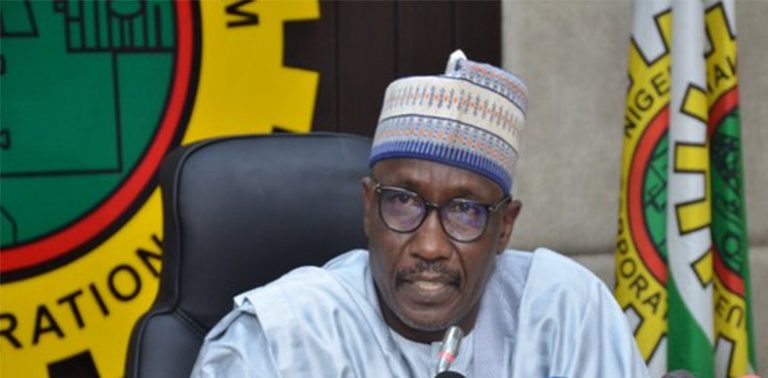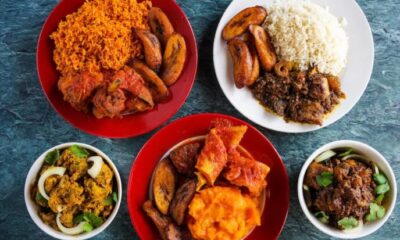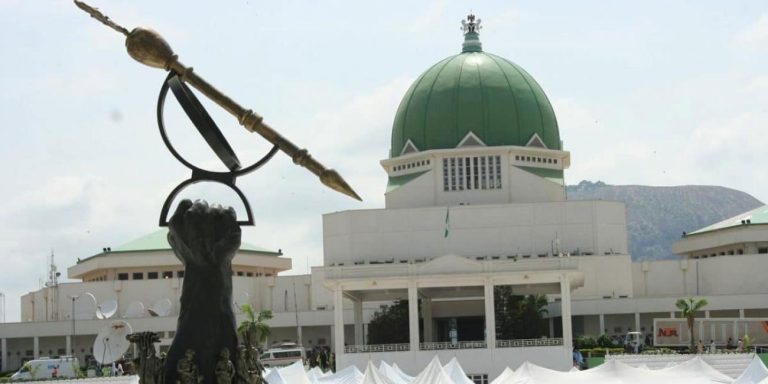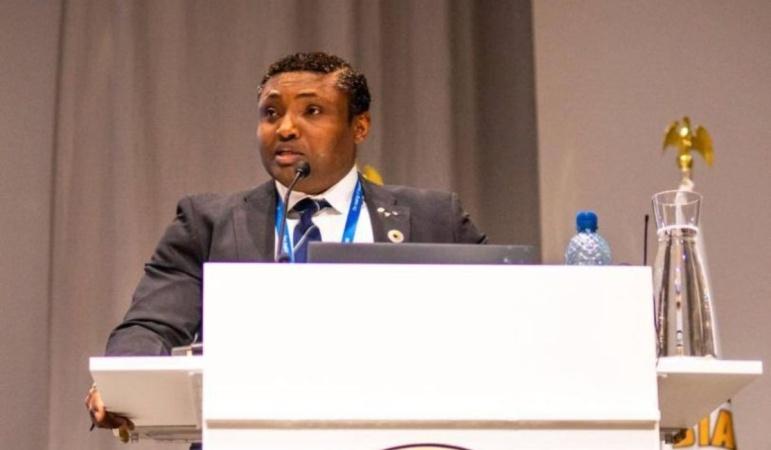Nigerians are once again grappling with increased fuel costs, as the Nigerian National Petroleum Company Limited (NNPCL) has adjusted pump prices upward. This latest price hike comes barely three weeks after the previous adjustment, further exacerbating the economic hardship faced by citizens.
On Tuesday, NNPCL stations in Abuja were observed selling petrol at N1,060 per liter, up from the previous price of N1,030. Similarly, in Lagos, the price increased to N1,025 per liter from N998.
The move has drawn widespread condemnation from various sectors, including the Organised Private Sector, Civil Society Organisations, and the general public. Experts fear that the price hike could further fuel inflation, which already reached a 28-year high of 34.2 percent in June.
Adding to the public’s frustration, the Dangote Petroleum Refinery has questioned the continued importation of petrol by oil marketers and NNPCL, despite the domestic production capacity of the $20 billion Lekki-based plant.
The President of Dangote Group, Alhaji Aliko Dangote, raised the concern in Abuja on Tuesday after he was summoned by President Bola Tinubu, alongside the Minister of Finance, Wale Edun, and the Group Chief Executive Officer of NNPCL, Mele Kyari.
“I have a refinery, I’m not in retail business. If I’m in retail business then you can hold me responsible. But what I’m saying is that the retailers should please come forward and pick (petrol). If they don’t come forward and pick, what do you want me to do?
“So, I am expecting either the NNPCL or the marketers to stop importing; they should come and pick because we have what they need. And as they move, I will be pumping,” Dangote stated after the meeting with the President in Abuja.
The new petrol price in Abuja is an increase of N30 from the old price, while in Lagos it is an increase of N27.
This adjustment also marks the third price change between September and October 2024 and is part of the government’s deregulation policy, which allows prices to fluctuate based on supply and demand dynamics.
At its mega station located along Wuse Zone 4, the price of the commodity was sold at N1,060 per litre.
But at its station located at Olusegun Obasanjo Way, Central Area, the product still sold at N1,030 with commuters scrambling to join the long queue.
The fresh increase followed the October 9, 2024 hike from N897 to N1,030. Also, on September 2, 2024, it was increased by the NNPCL. The retail company had hiked the price per litre of petrol from N617 to N897, sparking nationwide outrage.
Since the “subsidy is gone” presidential declaration in May 2023, the NNPCL has gradually increased the pump prices of petrol from N184 in Lagos to N1,025.
Though there has not been any official statement from the NNPCL on the latest increase in petrol prices – just like the oil firm did during their last hike earlier this month – the NNPCL hinted at a fresh price increase when it began loading its first batch of petrol from the Dangote Refinery in mid-September.
Then, it announced that it got petrol at N898 per litre from the private refinery and that it would sell it for N950 per litre in Lagos and N1,019 in Borno.
Dangote Refinery instantly denied selling petrol to the NNPCL at N898 but the latter challenged the refinery to release the price it sold the product.
The NNPCL further released a breakdown of pricing for Dangote petrol at its filling stations across the country.
Last December, Dangote, Africa’s leading industrialist, commenced operations at his $20bn facility sited in Lagos with 350,000 barrels a day.
Analysts expressed confusion over the latest hike, especially since crude oil prices in the international market had dropped approximately eight per cent to $72 per barrel from $78 per barrel.
The market price has not settled yet,” President, Petroleum Retail Outlets Owners Association of Nigeria, Billy Gillis-Harry, said.
“The situation is a pathetic one, and we hope the President will call us to negotiate the N100bn offer we have requested to stabilise the price of petrol. It will give us a guarantee of alternative sourcing of products.”
The National Publicity Secretary, Petroleum Retail Outlet-Owners Association of Nigeria, Joseph Obele, said members of the association had been buying PMS from the NNPC at the rate of N1,040 per litre before the oil company’s price hike on Tuesday.
He clarified that the NNPC was yet to issue a memo announcing the price increase, nor has it changed the price on the purchasing portal.
“We have not received a memo from the NNPC. It is circulating on social media, the news regarding price increment. But in our national headquarters, we have yet to get a memo to that effect, and it has yet to be reflected on our buying portal.
“The retail outlet owners or marketers licensed by the NNPC have a buying portal called the NNPC Retail Buying Express where we book products, and the amount on that portal as of this hour is still the old one. However, there are indications that the price will have an upward review in the next few days, but we are yet to see it on our portal,” Obele stated.
Asked how much the marketers buy from NNPC, Obele said those in Port Harcourt bought a litre for N1,040 while those in Lagos got for around N1,020 and N1,030.
“Though our portal rate has not changed, there are indications that we are on the verge of another price hike. We have permutations in the sector that make us ascertain when we are anticipating an upward review; and from all indications, there might be a review in the next few days because we are aware that the NNPC retail outlets in Lagos and Abuja have adjusted prices in the early hours of today (Tuesday),” Obele stated.
At the NNPCL fuel station in Ikotun, Lagos, petrol sold for N1,025 per litre on Tuesday.
It was also observed that the NNPCL filling station along Ogudu Expressway also dispensed petrol at N1,025 per litre. A number of vehicles were in the queue to buy the product.
Reacting to the latest increase in PMS price by NNPCL, the National Vice President, Nigerian Association of Small-Scale Industrialists, Segun Kuti-George, said the increase would trigger more hardship in the country.
“It will increase the cost of production, which will in turn increase prices of goods and services. Hence, it will drive inflation up further and will increase the cost of local goods, hence people will resort to foreign goods if they are cheaper than local goods, and this would lead to further collapse of local industry,” Kuti-George said.
“The cost of goods will go up, the cost of transportation will go up and that would affect the prices of food, which will mean further hardship to the people.”
The National President, Nigerian Association of Chambers of Commerce, Industry, Mines and Agriculture, Dele Oye, also decried the fuel hike.
He said, “As the Nigerian Association of Chambers of Commerce, Industry, Mines and Agriculture, we feel compelled to address the recent decision by the Nigerian National Petroleum Corporation to increase the price of Premium Motor Spirit from N998 to N1,025 in Lagos and N1,060 in Abuja.
“While we understand the complexities of the market and the need for adjustments, we must lament the broader implications of this decision.”
Oye asserted that despite the recent reductions in international crude oil prices, Nigerians were unable to benefit due to the endless depreciation of the naira.
He added, “This persistent decline in the currency’s value is largely a product of poor management and ineffective monetary policies by the Central Bank of Nigeria, which means that any global price relief is negated by rising domestic fuel prices.
“The correlation between the value of the naira and the international crude oil market prices is undeniable. Until this relationship is addressed, we will continue to bear the burden of escalating costs.”
According to him, President Tinubu’s decision to raise fuel prices may be seen as necessary within the current economic context.
“We, however, condemn this approach due to its adverse effects on businesses and consumers alike. The increased fuel prices will undoubtedly lead to higher transportation fares, further straining household budgets and increasing the cost of goods and services across various sectors,” Oye added.
“This reinforces inflationary pressures that are already affecting all aspects of life in Nigeria. We urge the administration to prioritise the stabilisation of the naira as a means of mitigating inflation and supporting the economic circumstances of everyday Nigerians. Without such a foundational approach, we will find ourselves trapped in a cycle of escalating prices, diminishing purchasing power, and an increasingly challenging business environment.”
The Director, Centre for Promotion of Private Enterprise, Dr Muda Yusuf, said the government needed to consider the welfare of Nigerians in policies surrounding energy prices.
Yusuf noted energy prices and the exchange rate were volatile, adding that policymakers needed to be cautious.
“The Nigerian economy is highly vulnerable to volatilities in energy prices and the exchange rate. Those two volatilities need to be carefully managed by the policymakers. As far as possible, those volatilities should be significantly moderated or reduced.”
He urged balance in economic reforms and called for a more sustainable approach.
The economist added, “Even within the context of the economic reform agenda, we (policy makers) should be conscious of ensuring a balance between commercial, fiscal and social objectives.
“Those three are critical to an economy that will make progress sustainably and (policymakers ought to) take the need for inclusion into consideration.
“You need to be careful to not have an economy that leaves too many people behind. Social considerations in the economic policy process are as important as fiscal and commercial considerations.
“That balance is very important. The government needs to commit a lot more to reducing these two critical volatilities.”
The Executive Director, Civil Society Legislative Advocacy Centre, Auwal Musa Rafsanjani, urged the government to block the corruption and leakages in the fuel subsidy system and tax the wealthy, to mitigate the difficulties and challenges brought about by the increase in fuel prices.
Rafsanjani said, “The Nigerian government should understand that all over the world, including countries with oil and non-oil, they make efforts to provide subsidies for their citizens, whether in terms of fuel, transportation, agriculture, education and health because there is a rationale for providing subsidies for citizens, especially those unable to meet the necessities of life. So, it is only proper that the Nigerian government reasons along that line.
“What the Nigerian government needs to do is to block the corruption in the fuel subsidy. It is not about the fuel subsidy; it is the corruption in the fuel subsidy that the government should have worked on.
“Our only plea is that the government should block corruption, block leakages and tax those who are not paying taxes. You know the rich men and women are not paying taxes, the international corporations are not paying taxes. And these are the areas where they could utilise to mitigate the difficulties and challenges Nigerians are going through,” he said.
The Chairman, Centre for Accountability and Open Leadership, Debo Adeniran, said the decision of the government could “stoke the embers of discord and unleash the people’s anger against the government, adding that Nigeria should look inward to ensure that it does not consume what it doesn’t produce.”
He added, “What the government is doing is to stoke the embers of discord. Of course, the administration is losing support daily, and it will get to a stage whereby nobody will be able to stop the people’s anger. And when the people’s anger is unleashed on the government, we can’t predict what will end it. For so many years we have been articulating workable alternatives to economic reconstructive strategies that they are adopting.
“And we are saying that they should look into ensuring that corruption is controlled, the potential of this country is harnessed, stolen monies retrieved, gains of subsidy withdrawal applied to touch the lives of the generality of the people.
“People should be deliberately empowered to do their businesses in such a way that they will make enough profit with which they can solve their socio-economic problems. Nigeria should begin to look inwards rather than outwards to ensure that whatever we cannot produce, we do not consume.”
- Nigerians Express Frustration
Nigerians took to social media on Tuesday to vent their frustrations and resignation over the new fuel price increase.
An X user, Godwin Onoghokere, lamented the relentless rise in fuel costs.
“President Tinubu increased fuel pump prices today (Tuesday). Recently NNPC hiked fuel prices to about N1,030 per litre in Abuja and N998 in Lagos. This new increment will see Nigerians in Abuja and Lagos buy petrol for N1,060 and N1,025 per litre respectively,” Onoghokere posted, speculating the price may hit N1,500 per litre by December.
Jeremiah Adamu expressed a sense of resignation over the government’s moves.
“Nigerians don’t care anymore on the issue of Tinubu APC fuel increase,” he stated. “If he likes, as Minister of Petroleum, he should take the fuel pump price to N5,000 per litre. The filling stations are already empty.”
Others called for action, with Makyur Benjamin suggesting a potential boycott.
“Truth be told, Nigerians are the real problems of this country. As they are increasing the price, we should learn to stay away from the stations,” he wrote.
Some others expressed concern about even more increases in the coming months. “The fuel pump price has risen to N1,350. I forecast it will exceed N1,500 officially prior to the Christmas holiday. This surge is troubling,” posted Zaki Chimin.
For many, the fuel price increase adds to other daunting economic issues.
“There has been no light in the north for the past seven days or so,” wrote Jabi Dregs. “Most businesses will hit rock bottom as capital is lost in damaged goods. Fuel pump prices have jumped again today (Tuesday)! But you all are still arguing about football since last night.”
Other users defended the government’s actions as part of a deregulated market. “The market is fully deregulated. It’s one of the features of a free market. Market forces control the price now,” posted Utor Celestine.
The government’s deregulation policy and rising inflation have increased pressure on Nigerians, leaving many questioning the sustainability of daily living expenses.
Credit: The Punch.

 BIG STORY4 days ago
BIG STORY4 days ago
 BIG STORY4 days ago
BIG STORY4 days ago
 BIG STORY4 days ago
BIG STORY4 days ago
 BIG STORY3 days ago
BIG STORY3 days ago
 BIG STORY4 days ago
BIG STORY4 days ago
 BIG STORY1 day ago
BIG STORY1 day ago
 BIG STORY2 days ago
BIG STORY2 days ago
 BIG STORY1 day ago
BIG STORY1 day ago




















